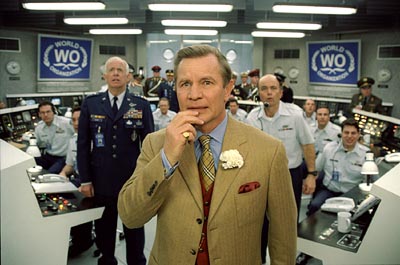Writing exposition is tedious.
And the fact that you may not know what exposition is means I have to come up with an interesting way of explaining it. And I can’t be bothered, because it’s tedious.
I’m putting together a treatment for a drama series at the moment, and I’m in the annoying situation of having characters that know their own back story having to convey that story to the audience. My first instinct is to have them not bother. Why would they be talking to one another about it after all? As an audient myself, I like it when I have to do some work to figure out what’s going on. A question left unanswered is a potential for mystery, and mystery can give plots momentum.

Moreover, what an audient can imagine is probably much more interesting than what you can realise on screen.
An excellent example of this can be found in the film Mission Impossible 3. We never learn what the Rabbit’s Foot is, nor what it does, but the way the characters react to it tells us everything we need to know.
So if you find yourself having to write a scene in which three characters must outline their relationship to one another, skip it. If their characters are well drawn, and the hierarchy is there, it should come through in their interactions anyway.
If you’ve ever written the line, “Well, you’re the boss” or “So Mum how are you since Dad died?” go and seek out David Mamet’s CAPS LOCKED RANT.











